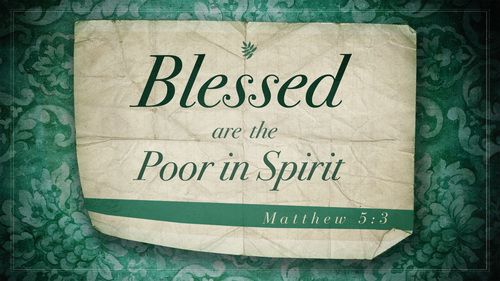The Poor in Spirit
Blessed are the Poor in Spirit

“Blessed are the poor in spirit, for theirs is the kingdom of heaven.”- Matthew 5:3 (NIV)
What Kind of Poverty is Jesus Talking About?
In Luke’s version of the sermon on the mount, Jesus says “Blessed are you who are poor” (Luke 6:20). The addition of “in spirit” in Matthew’s Gospel has been the source of considerable debate. One theory is that in Luke, the emphasis is on physical or economic poverty, while in Matthew, the focus is spiritual poverty.
The reality is that Jesus’ Jewish audience would not have drawn a sharp distinction between spiritual and financial poverty. Stated another way, their theology of wealth and started with the assumption that God blessed righteous people with financial prosperity and cursed unrighteous people with poverty and affliction (based on passages like Deuteronomy 28). It was more or less assumed that the reason a person was financially poor was because they were spiritually bankrupt, and God was punishing them for not following the Law of Moses as closely as they should. That means there wasn’t much of a difference between being poor physically and being poor spiritually for Jesus’ Jewish audience. They were two sides of the same coin.
This both/and reading of poverty is the way Scot McKnight approaches the issue in his commentary:
The reality is that Jesus’ Jewish audience would not have drawn a sharp distinction between spiritual and financial poverty. Stated another way, their theology of wealth and started with the assumption that God blessed righteous people with financial prosperity and cursed unrighteous people with poverty and affliction (based on passages like Deuteronomy 28). It was more or less assumed that the reason a person was financially poor was because they were spiritually bankrupt, and God was punishing them for not following the Law of Moses as closely as they should. That means there wasn’t much of a difference between being poor physically and being poor spiritually for Jesus’ Jewish audience. They were two sides of the same coin.
This both/and reading of poverty is the way Scot McKnight approaches the issue in his commentary:
“So, rather than being forced to choose between economic or spiritual poverty, it is wisest to see here a both/and: both spiritually dependent and economically needy. Moreover, the socioeconomic rootedness of the word “poor” does not permit exclusively the spiritual poverty interpretation, and the “in spirit” demands that this be more than simple economic oppression.” (Scot McKnight, Sermon on the Mount, p. 39.)
A Profile of the Poor in Spirit
The word Jesus uses here for “poor” refers to the very bottom class—not just the typical peasants in Israel, but those who are truly destitute. My go-to Greek dictionary of Biblical words defines “poor” as “economically disadvantaged,” “being thrust on divine resources,” “lacking in spiritual worth,” or "extremely inferior in quality.”
Because these people had absolutely nothing, they were completely dependent on the generosity of others, and especially God. This created a sense of humility and dependence on God, such that the poor in the Old Testament came to be associated with those who rely completely on God instead of the world—a positive example for the of Israel to follow.
If humility is one characteristic of the poor, loneliness and isolation would be another. Several scholars connect “the poor in spirit” to a class of people called the Anawim in the Old Testament. The Anawim were the ones left behind in Israel when all of the worthwhile people were taken off as slaves to foreign nations. They were so useless that they were left behind instead of being forced to work.
Randy Harris tells a story in his book Living Jesus about being on a softball team and having to ride the bench, even though his team was short a player. They’d rather have him sit down and do nothing than let him fill an empty spot on the field. That’s what it means to be among the Anawim.
Scot McKnight identifies three key characteristics of the Anawim in the Old Testament:
Because these people had absolutely nothing, they were completely dependent on the generosity of others, and especially God. This created a sense of humility and dependence on God, such that the poor in the Old Testament came to be associated with those who rely completely on God instead of the world—a positive example for the of Israel to follow.
If humility is one characteristic of the poor, loneliness and isolation would be another. Several scholars connect “the poor in spirit” to a class of people called the Anawim in the Old Testament. The Anawim were the ones left behind in Israel when all of the worthwhile people were taken off as slaves to foreign nations. They were so useless that they were left behind instead of being forced to work.
Randy Harris tells a story in his book Living Jesus about being on a softball team and having to ride the bench, even though his team was short a player. They’d rather have him sit down and do nothing than let him fill an empty spot on the field. That’s what it means to be among the Anawim.
Scot McKnight identifies three key characteristics of the Anawim in the Old Testament:
- They were economically poor, yet trusted in God
- They met together at the Temple
- They longed for the Messiah to return and bring justice to their lives.
Blessings for the Spiritually Poor
First-century Jews assumed that wealth as a sign of God’s blessing, but Jesus had a different message: The poor in spirit are the ones who are blessed by God, and the kingdom of heaven belongs to them. I hope you realize how dramatic and shocking this would have been. It turned his audience’s assumptions about wealth and righteousness upside down, as Michael Wilkins has said:
Why did Jesus call the poor in spirit blessed? Why did he say that God’s Kingdom belonged to them? Perhaps the most compelling reason is that the poor in spirit were humble enough to admit they had nothing holy, spiritual or righteous to offer God.
This idea—that the poor in spirit are the ones who recognize their lack of spiritual merit—is one of the most consistent points that Bible commentators make about the first beatitude. Consider the following statements from three commentators:
Unlike the Pharisees who are convinced they have earned God’s blessing through a strict observance of the Law, the poor in spirit recognize they are sinners in need of a savior. Jesus’ parable of the Pharisee and a tax collector praying at the Temple is a perfect illustration of those who think they are spiritually rich versus those who know they are spiritually poor.
The blessing that Jesus offers this group of people—poor, downtrodden sinners who know they need a savior—is that they are blessed by God, and the kingdom of heaven is theirs. In contrast to the pervasive cultural and theological assumption that the poor were living under God’s curse, Jesus assures them God sees them, cares for them, and extends his blessings to him.
“This first beatitude undercuts the predominant worldview that assumes that material blessings are a sign of God’s approval in one’s life and that they automatically flow from one’s spiritual blessings. Instead, Jesus teaches that the norm of the kingdom of heaven is spiritual bankruptcy, unlike the spiritual self-sufficiency that was characteristic of the religious leaders.” (Michael Wilkins, NIV Application Commentary, Matthew p. 206.)
Why did Jesus call the poor in spirit blessed? Why did he say that God’s Kingdom belonged to them? Perhaps the most compelling reason is that the poor in spirit were humble enough to admit they had nothing holy, spiritual or righteous to offer God.
This idea—that the poor in spirit are the ones who recognize their lack of spiritual merit—is one of the most consistent points that Bible commentators make about the first beatitude. Consider the following statements from three commentators:
- Richard Rohr writes that to be poor in spirit is “to live without a need for our own righteousness.”
- John Stott says “To be poor in spirit is therefore to acknowledge our spiritual poverty, indeed our spiritual bankruptcy, before God. For we are sinners, under the holy wrath of God, and deserving nothing but the judgment of God. We have nothing to offer, nothing to plead, nothing with which to buy the favour of heaven.”
- Michael Wilkins says, “This also includes those who recognize that they can produce no spiritual or religious self-help before God. They are spiritually bankrupt.”
Unlike the Pharisees who are convinced they have earned God’s blessing through a strict observance of the Law, the poor in spirit recognize they are sinners in need of a savior. Jesus’ parable of the Pharisee and a tax collector praying at the Temple is a perfect illustration of those who think they are spiritually rich versus those who know they are spiritually poor.
The blessing that Jesus offers this group of people—poor, downtrodden sinners who know they need a savior—is that they are blessed by God, and the kingdom of heaven is theirs. In contrast to the pervasive cultural and theological assumption that the poor were living under God’s curse, Jesus assures them God sees them, cares for them, and extends his blessings to him.
